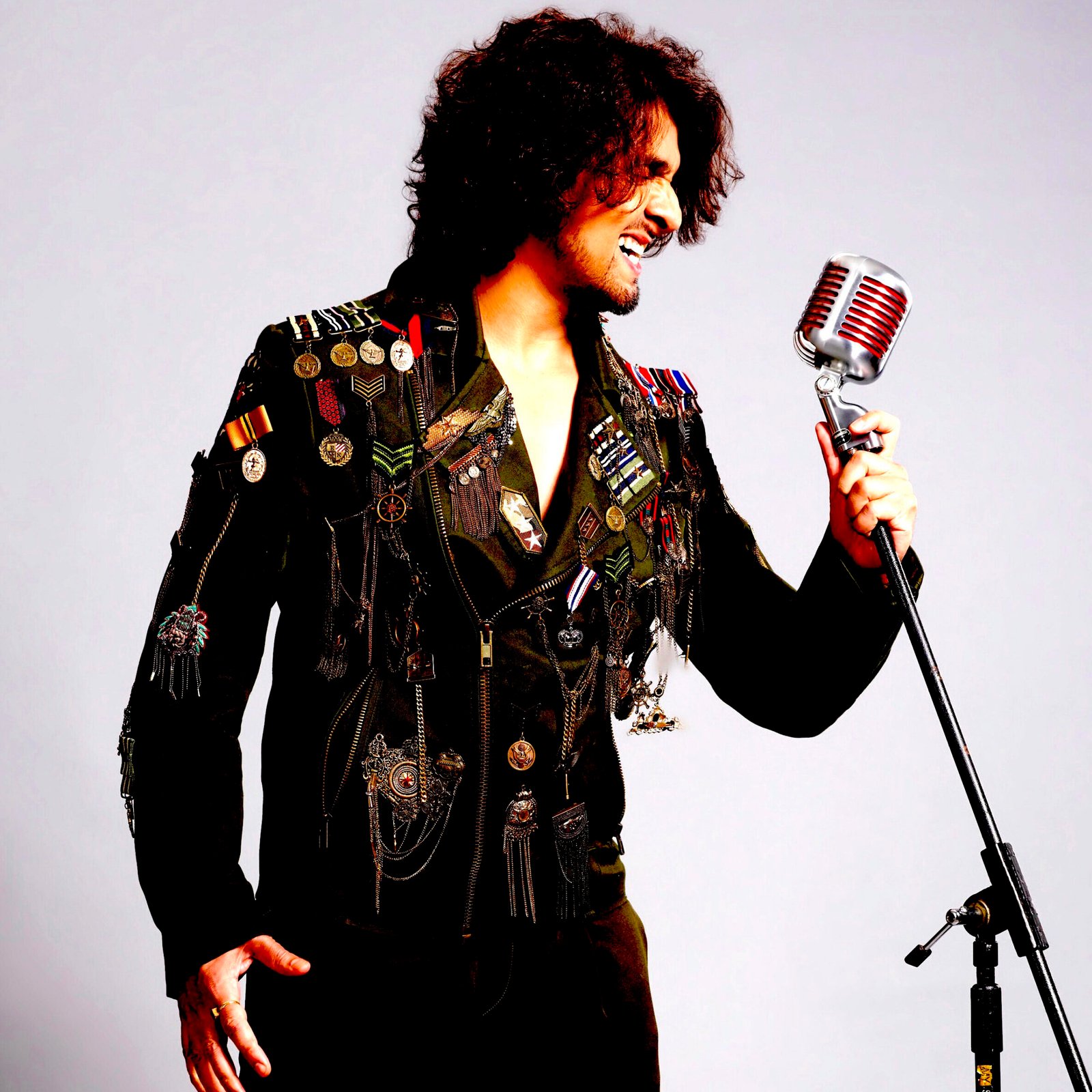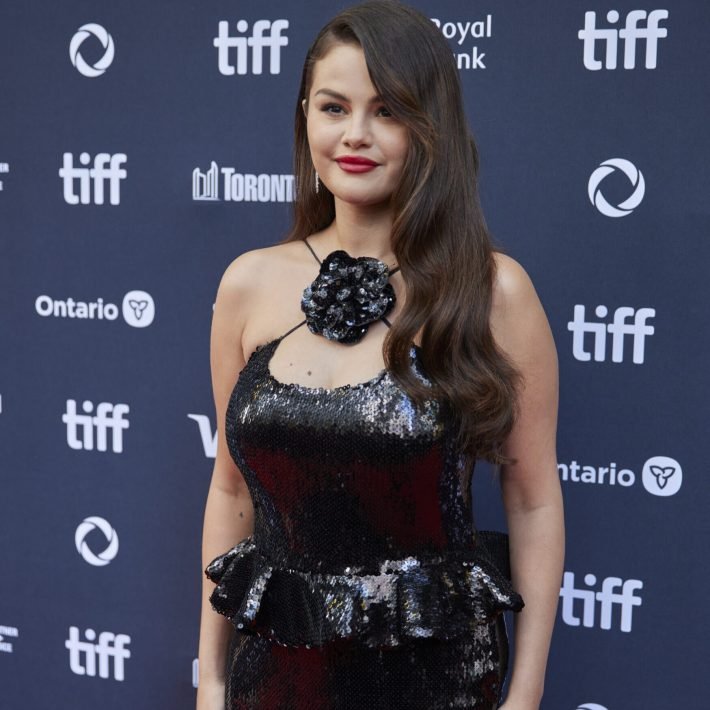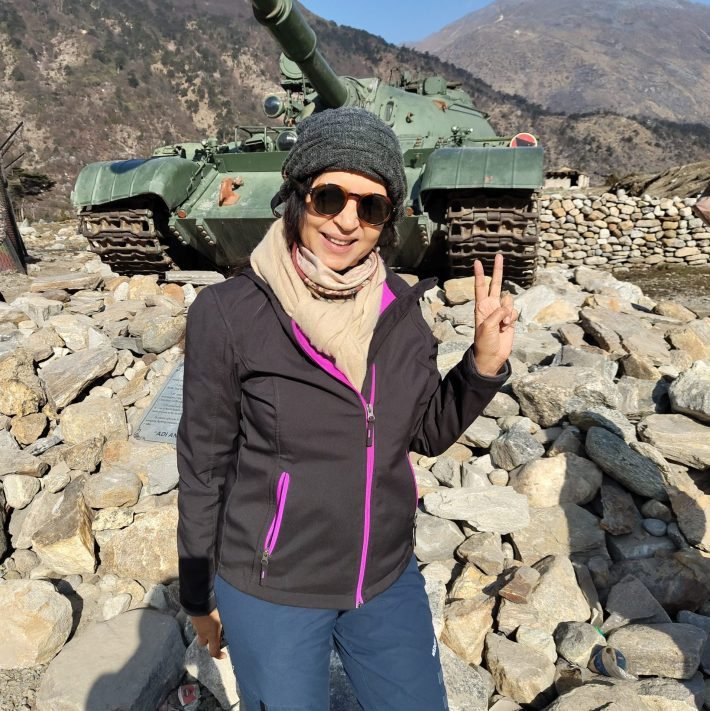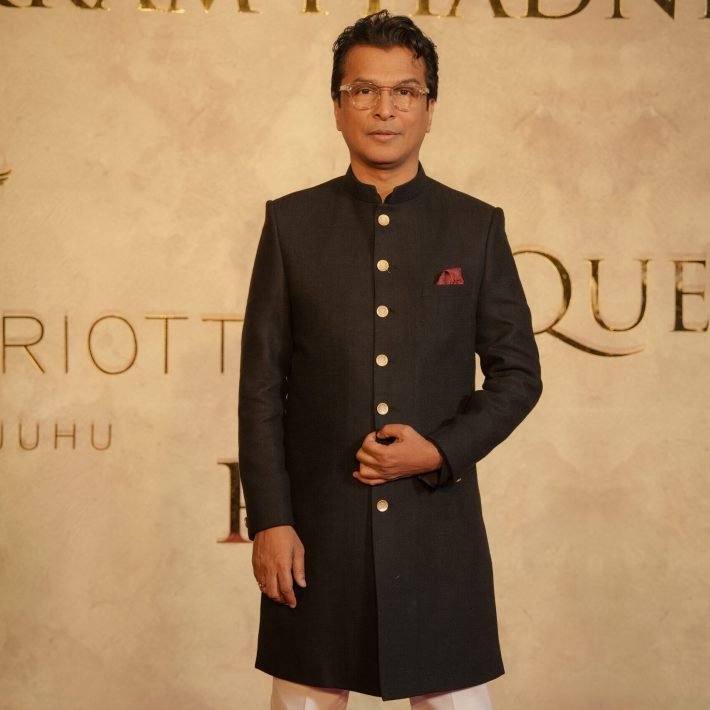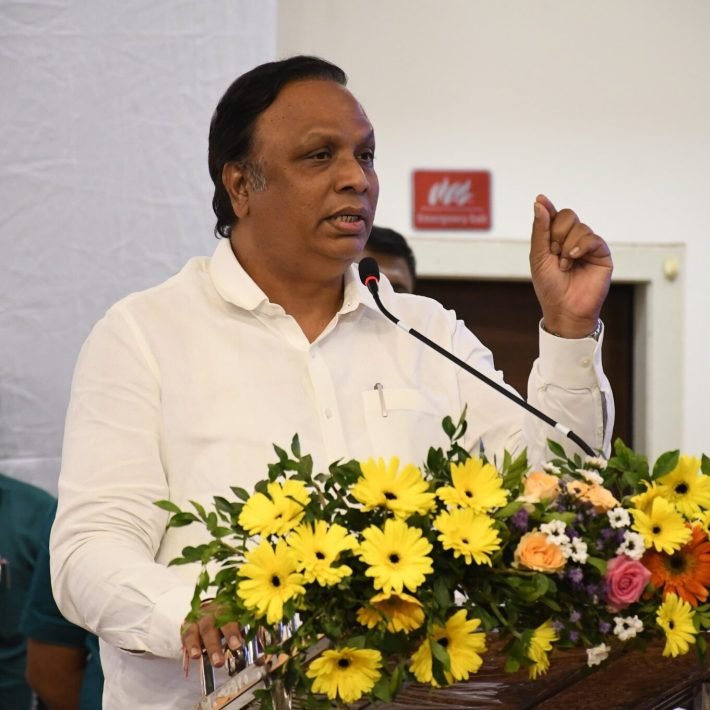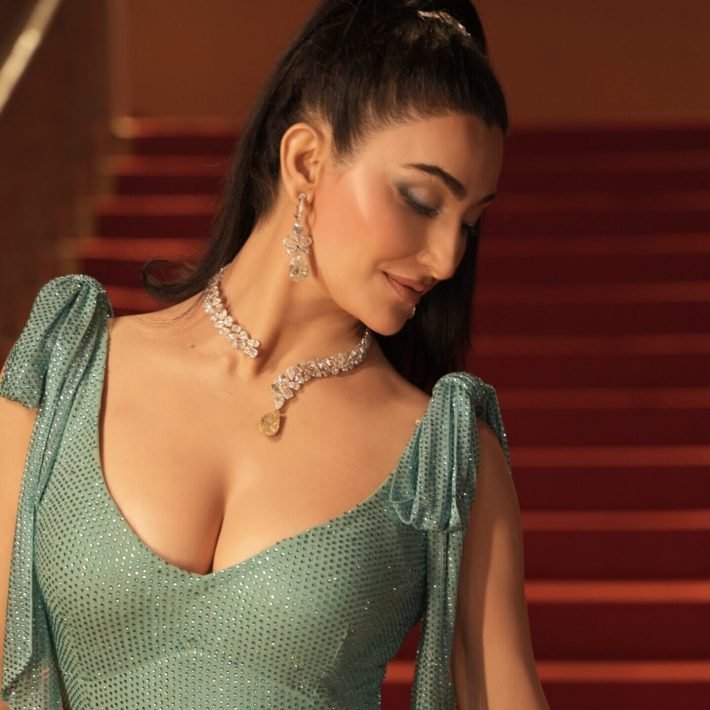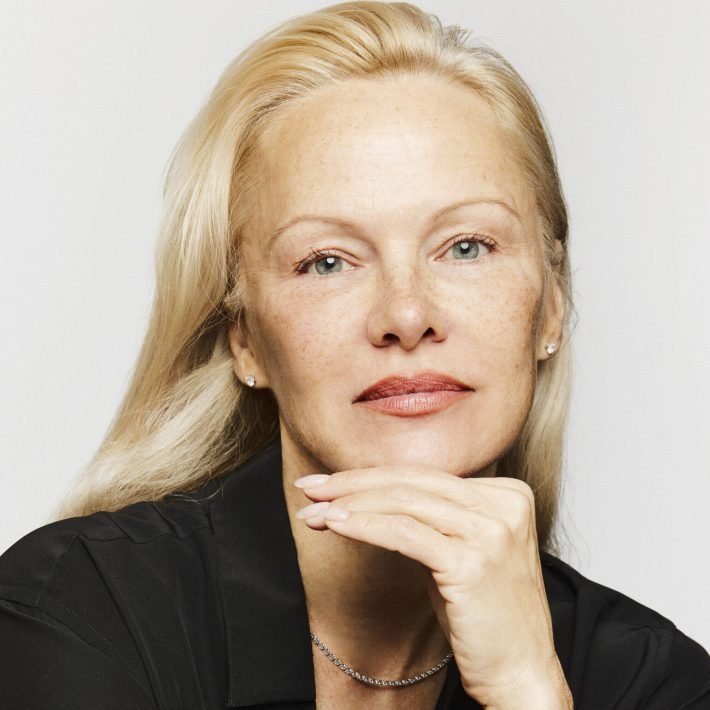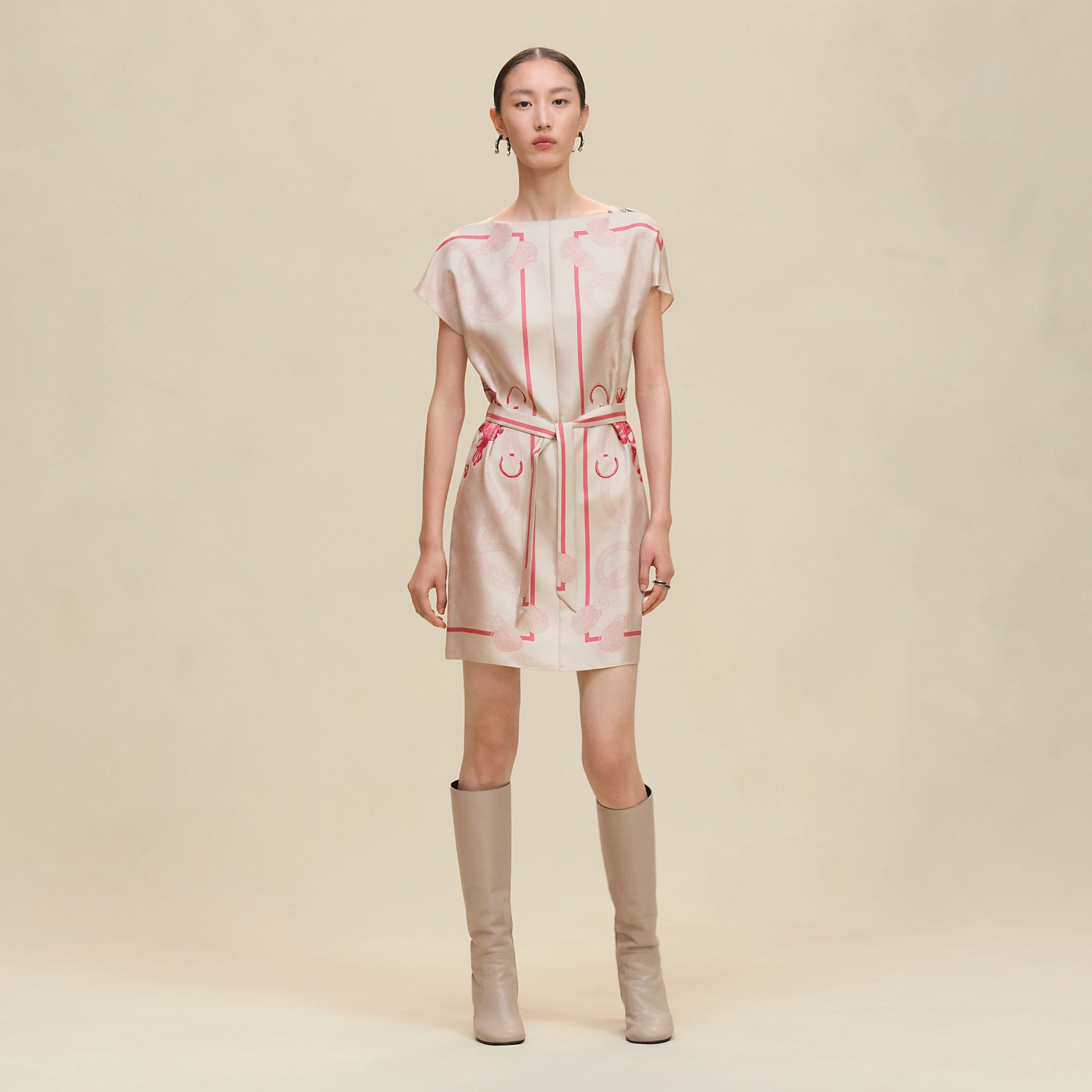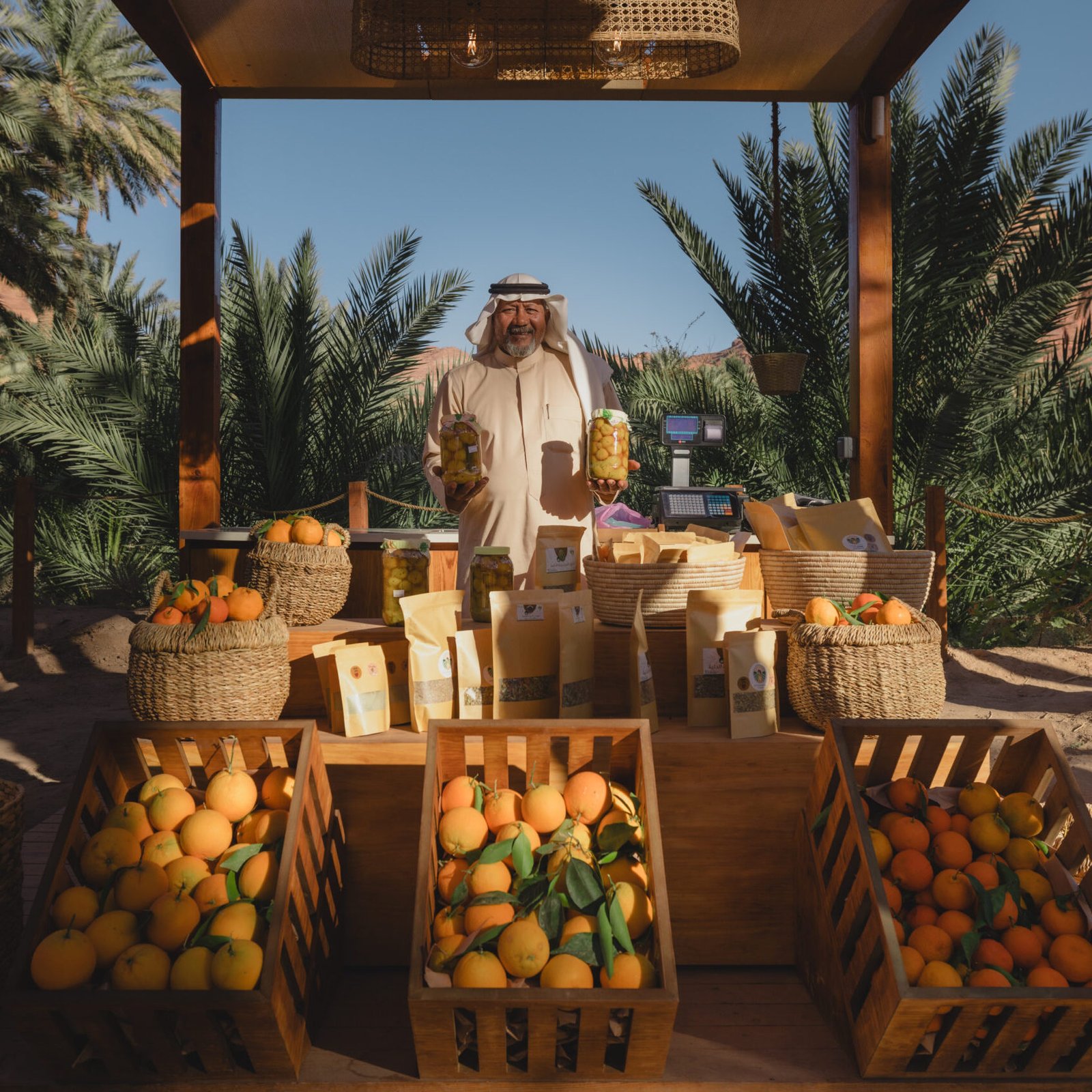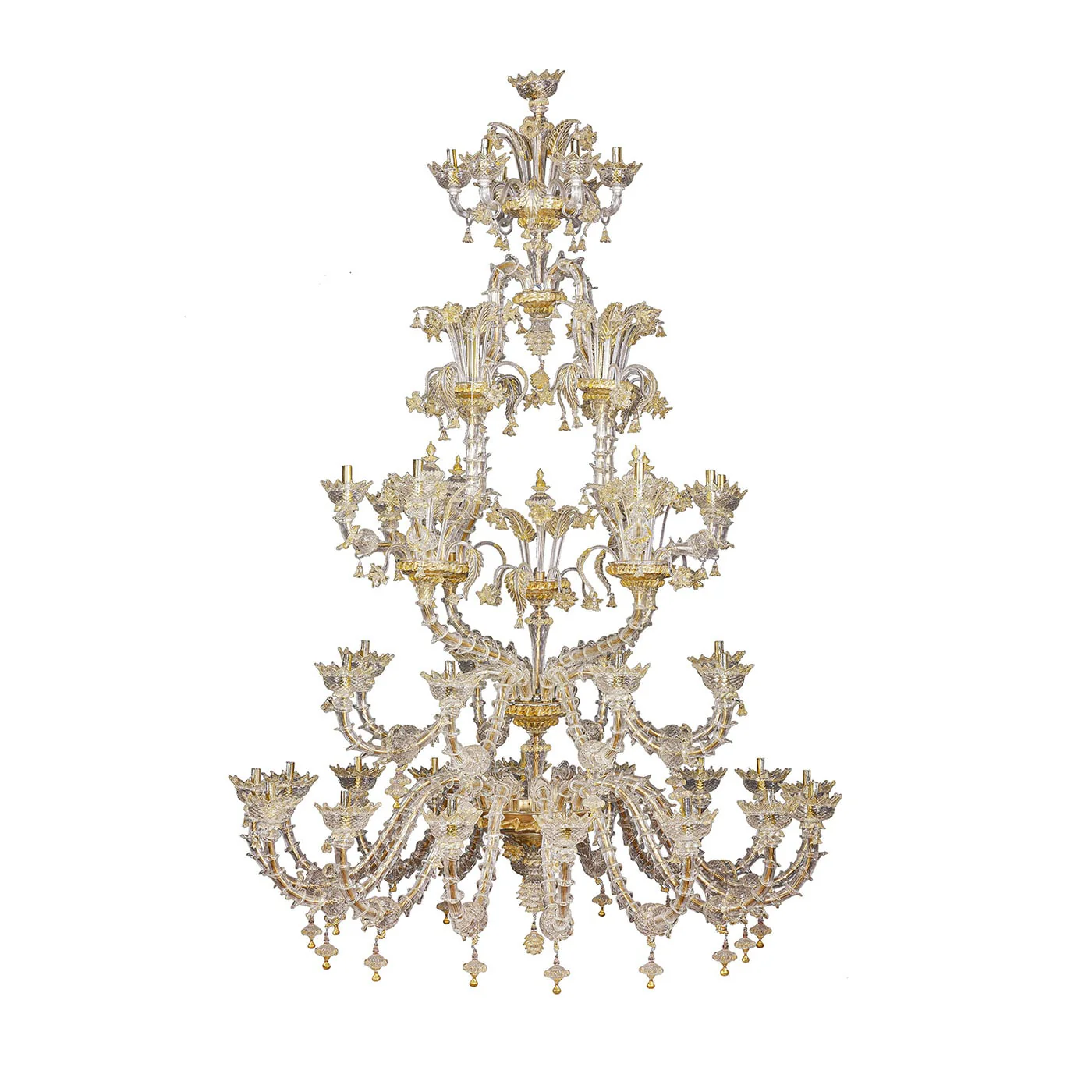Renowned playback singer. Powerhouse live performer. Independent musical genius. Sonu Nigam, India’s iconic and much-loved singer, is one of the country’s most versatile voices. Over his three-decade career, he has delivered countless chartbusters, redefining Bollywood music with his beyond impressive range. A true musical legend, he is also known to live life on his own terms. Let’s delve into the mind of this maestro…
By Andrea CostaBir
You resonate with multiple generations of music lovers. Is that a big high?! What exactly do you do to stay relevant?
It is absolutely a matter of good fortune to be loved by so many people of different generations… I have been told that I have been loved by people of three generations since 1995 when ‘Sa Re Ga Ma’, the show I hosted, was telecast for the first time. Even today, I’m greeted with smiles filled with love and warmth when I am seen in my car on the roads by pedestrians, drivers, passengers of other vehicles, policemen and traffic cops… I feel I’m living a dream that I never imagined.
As for what I do to stay relevant, I’ll tell you what I don’t do. I don’t ticize people. I don’t look down upon other artistes and other genres. I don’t credit my success to myself. I surrender. I have kept the student inside me alive since I once wrote a quote that said: “When the student dies, the Master dies!” Relevance perhaps, is a byproduct of all this.

Having excelled in playback singing and Independent music, please give us a little insight into your musical journey. And your riyaaz.
No one can say that he or she excels in singing or any other art form. We get better, but a true artiste knows not what he’s good at, but what he lacks. Thus comes the concept of riyaaz and hard work. I am doing the best I can considering my limitations of having never been given an opportunity to learn music duly and classically in my childhood. I was a self-learner, although I had in front of me a benchmark of my father Mr Agam Kumar Nigam, an exceptionally gifted singer, who himself was untrained though, but his versatility and range and his detailing for perfection in rendering a song was what inspired me to look at any song with magnifying lenses. My mother, the late Shobha Nigam, was musically even better than my father, though my father is a singer of a very high standard. Thus, music was the staple food of our house.

You have had a plethora of ‘sold out’ stage shows across the globe! Do you enjoy live shows? Please share insights into these huge international music shows of yours that have been runaway successes!!
I have been performing on stage since 1977, so this is my 47th year as a professional singer. Of course, I started doing my own shows only after I started getting popular – 1993 onwards. Shows started getting bigger and bigger gradually and audiences started getting larger as years passed by. Although, it’s not the size that matters, honestly. I remember some shows in smaller auditoriums that we do sometimes when there’s a cause to support, and the audience and the energy is inexplicably divine. Then sometimes there are some private or corporate events where people, who have actually come to celebrate and enjoy, after having witnessed a crazy high-octane show throughout, are left weeping when I end the show with some profound numbers, with tears in my own eyes. The stage is a litmus test. A temple of sorts. I die every time I am on it.
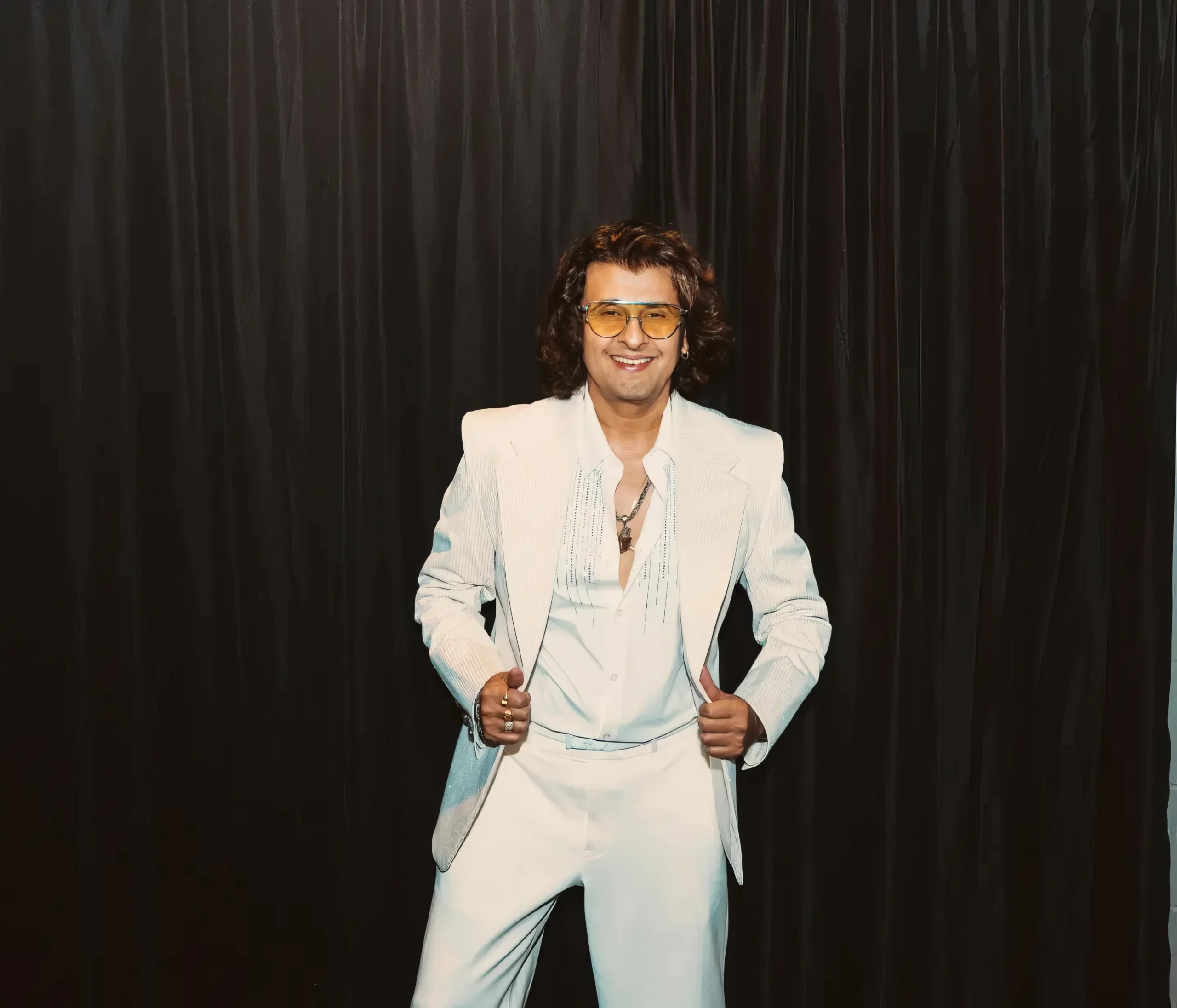
Your song ‘Kal Ho Naa Ho’ is iconic. Did you expect it to become such a timeless classic?
Interestingly, one never knows which song is destined for what glory. ‘Kal Ho Naa Ho’ though was the quintessential coveted title track of a Karan Johar-Shah Rukh Khan project, brilliantly composed and written by SEL and Javed Akhtar sahab respectively, but never did I imagine that it would be that one song that’s rated sometimes as the most loved Indian film song ever. As you rightly termed it, it’s a timeless classic.

From romantic ballads like ‘Suraj Hua Maddham’ to energetic hits like ‘Bijuriya Bijuriya’, ‘Jeene Ke Hain Chaar Din’, and ‘Tumse Milke Dilka Jo Haal’, you are a master of diverse genres. What would you like to say about your amazing vocal range?
Thank you. My inspiration is my father, who began with singing Mukeshji’s songs, and then graduated to Rafi sahab’s songs which he’s still considered as an authority on, to singing diverse singers like Kishoreji, Manna Dey, Narendra Chanchal, Aziz Naza, and what all! He could do and still can do anything on stage. He and my mother introduced me to the greats of film music. Then my mother inspired me to learn the bhajans of Anup Jalotaji and ghazals of Pankaj Udhasji, Ghulam Aliji, Mehdi Hassanji etc. I was then introduced to English music in school in 1987.
It captured my young imagination and I started imagining myself putting Western nuances in Indian film songs, which I eventually did with ‘Yeh Dil Deewana’ from ‘Pardes’ in 1997, 10 years later. So it’s been a gradual process of learning
and imbibing.

You’ve collaborated with AR Rahman (‘Saathiya’), Anu Malik (‘Sandese Aate Hain’), and so many other influential composers. Do share your experiences with them.
I’ll have to write a book, which I am actually doing currently, to encapsulate my experiences with all my composers. We, in this music industry, are very fortunate to actually be here. Most of us are from small towns, where we started with decent musicians and co-singers. And then we are thrown into this massive furnace of the Mumbai Music Industry where we are pitched with or against the best in the world. The best talents, the best brains, the best musicians, composers, singers, engineers… the learning never stops. My composers have played the most vital part in my life as the good ones saw to it that my best is extracted from me. The average ones taught me how to rise above an average song. I’m indebted to all of them.
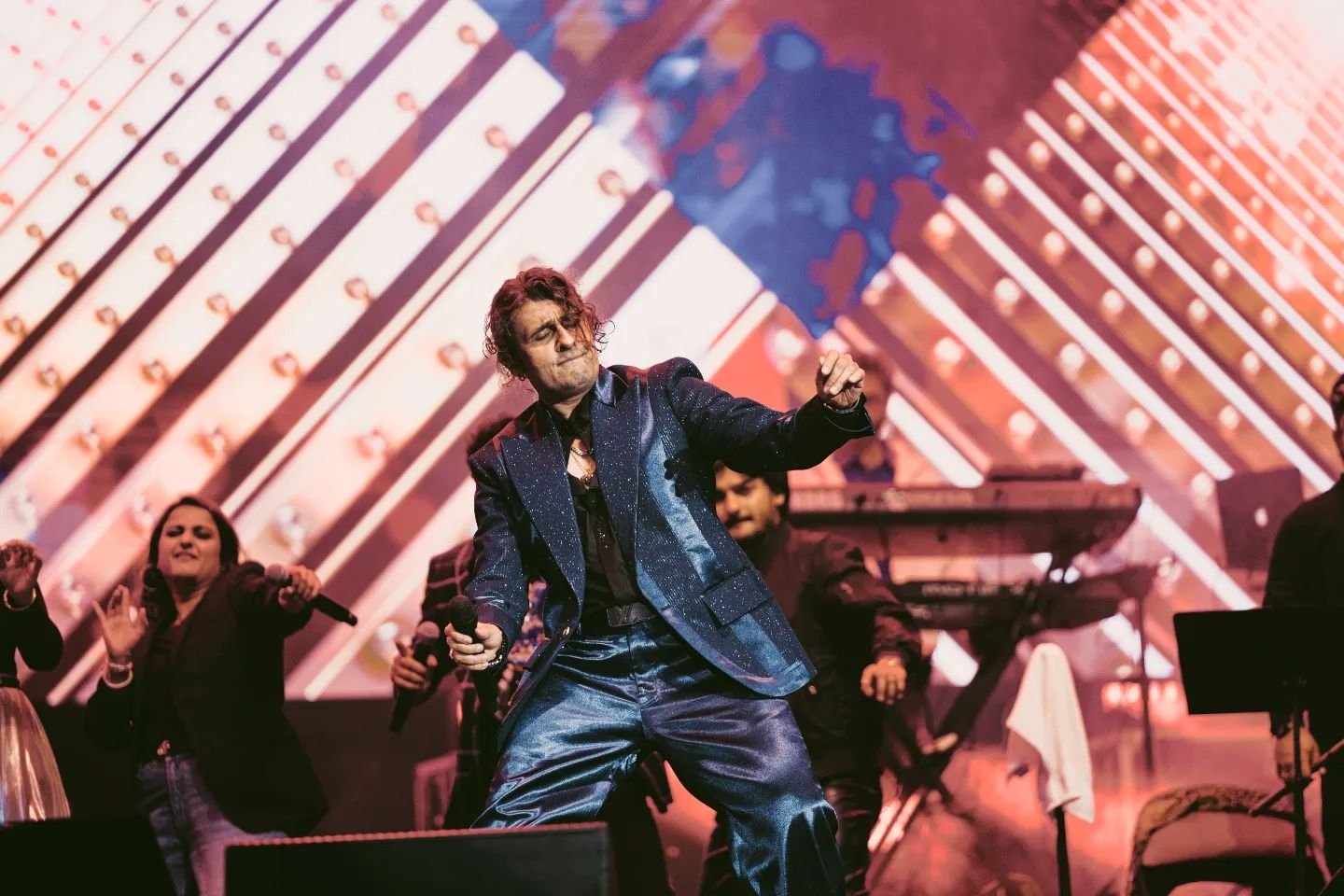
Are there any contemporary artistes or producers, globally or in India, that you are eager to collaborate with?
I would like to do some Independent music with the new crop of composers and songmakers. I find their music, their thought process, very interesting.
Your stint as the host of ‘Sa Re Ga Ma’ brought you closer to your fans. How did this experience help you?
I’d say that was the highest point of my life, without me even realizing it back then. Not because of the fame (which I got in plenty) or money (which I hardly made from it) I received, but because legends who my parents spoke about throughout my childhood, themselves came to meet me in my show. What bigger blessing for a 21-year-old boy from Delhi who had arrived in Mumbai just four years back, and here he’s the host of the first and the biggest musical show of the country?! Stalwarts like Anil Biswas, OP Nayyar, Pt Ravi Shankar, Rajkumari, Mehdi Hasan, Ghulam Ali, Pt Ram Narayan, Girija Devi, Jagjit Singh and hundreds of others graced our stage as judges and guests, showering me with love and blessings that I could never have fathomed ever. Most of the legends are no more but they live in my heart.
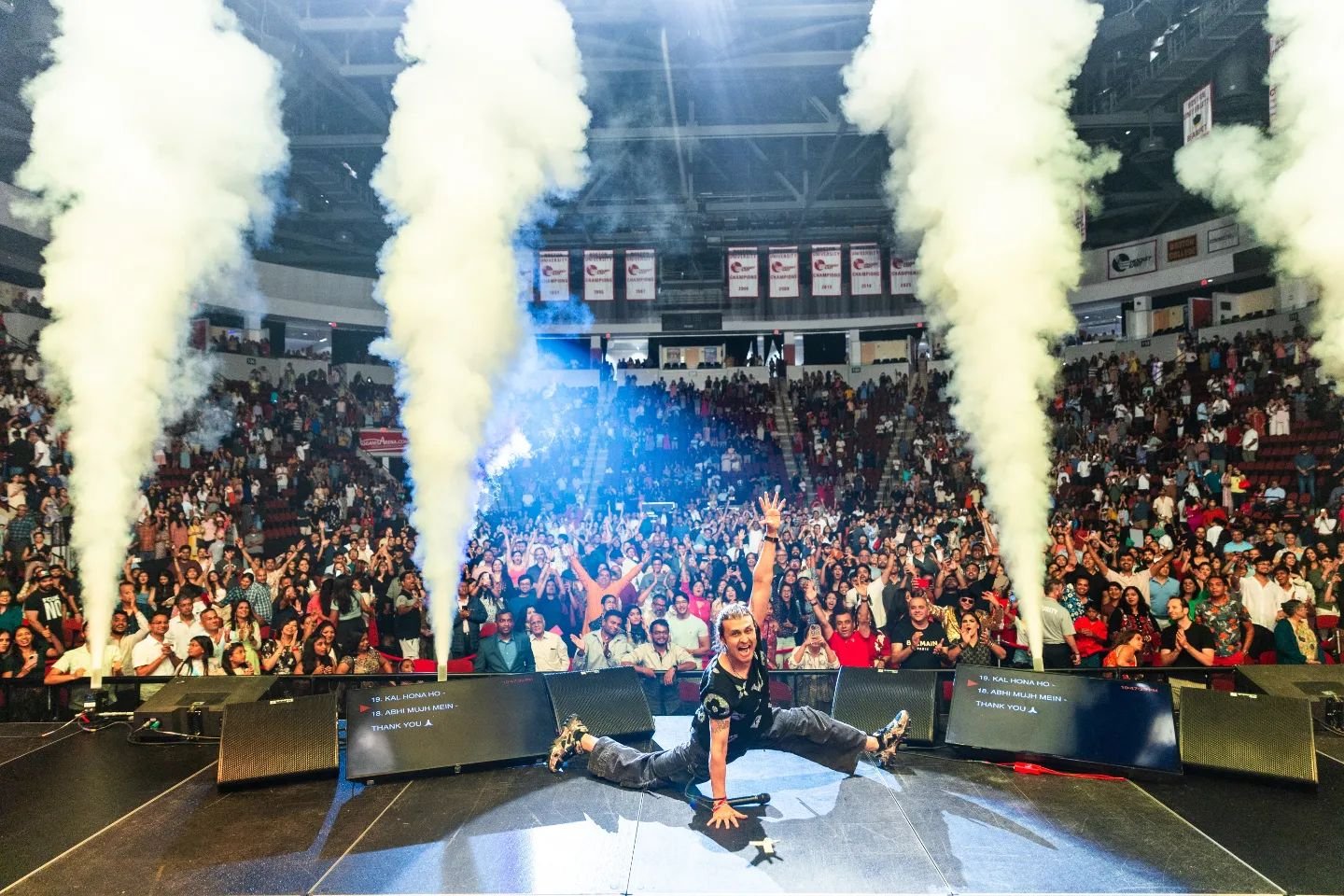
You’ve sung for Shah Rukh Khan in numerous films, from ‘Kal Ho Naa Ho’ to ‘Satrangi Re’. Is there a certain special chemistry you feel when singing for him?
Shah Rukh Khan has been very fortunate for me and I always will maintain that. He’s a gracious man, always acknowledging my contribution to him, or as a matter of fact, any other singer’s contribution to his career. It takes a lot of goodness and security for a superstar like him to express such genuine gratitude. He doesn’t need to. So many others don’t, and in fact are the exact opposite of what Shah Rukh is.

Your ‘Deewana’ album still enjoys cult status. How do you reflect on the success of your non-film music?
I waited a very long time before I got an opportunity to foray into the Independent music scene, called Indie Pop Music back then.
‘Sapne Ki Baat’ was actually my first pop album which released with T-Series immediately after the demise of Gulshan Kumarji, my mentor, so one couldn’t expect anything from that album when the company was in a sis. ‘Kismat’ in 1998, with Magnasound, became my first pop success followed by ‘Mausam’ in 1999 and then the big bang by ‘Deewana’ the same year, shook the world of pop music. Bhushan Kumar deserves a lot of credit for taking up the challenge of making ‘Deewana’ a worldwide success.
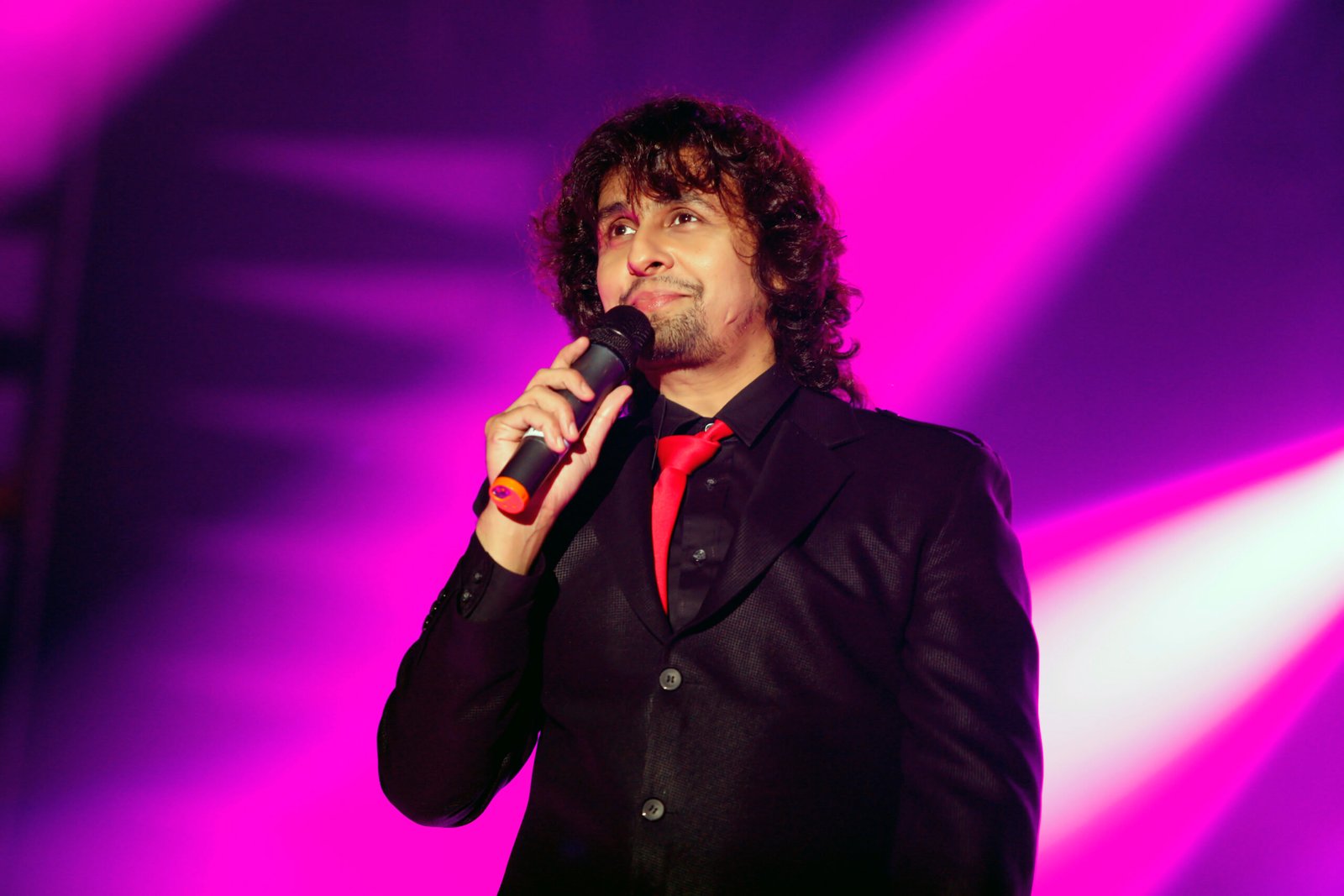
‘Sandese Aate Hain’ became an anthem of patriotism for the nation… your views on it?
Back then, I was getting songs, and was doing ‘Sa Re Ga Ma’ too besides concerts, but that one big banger that I needed to put me on the map of the leading playback singers of India, had still not come my way. I was restless, sometimes disappointed, as I was very young. Then came 1997 and
‘Sandese Aate Hain’ and then ‘Yeh Dil Deewana’ propelled me to skyrocketing heights! ‘Sandese Aate Hain’, till today, brings tears in the eyes of the audience worldwide.
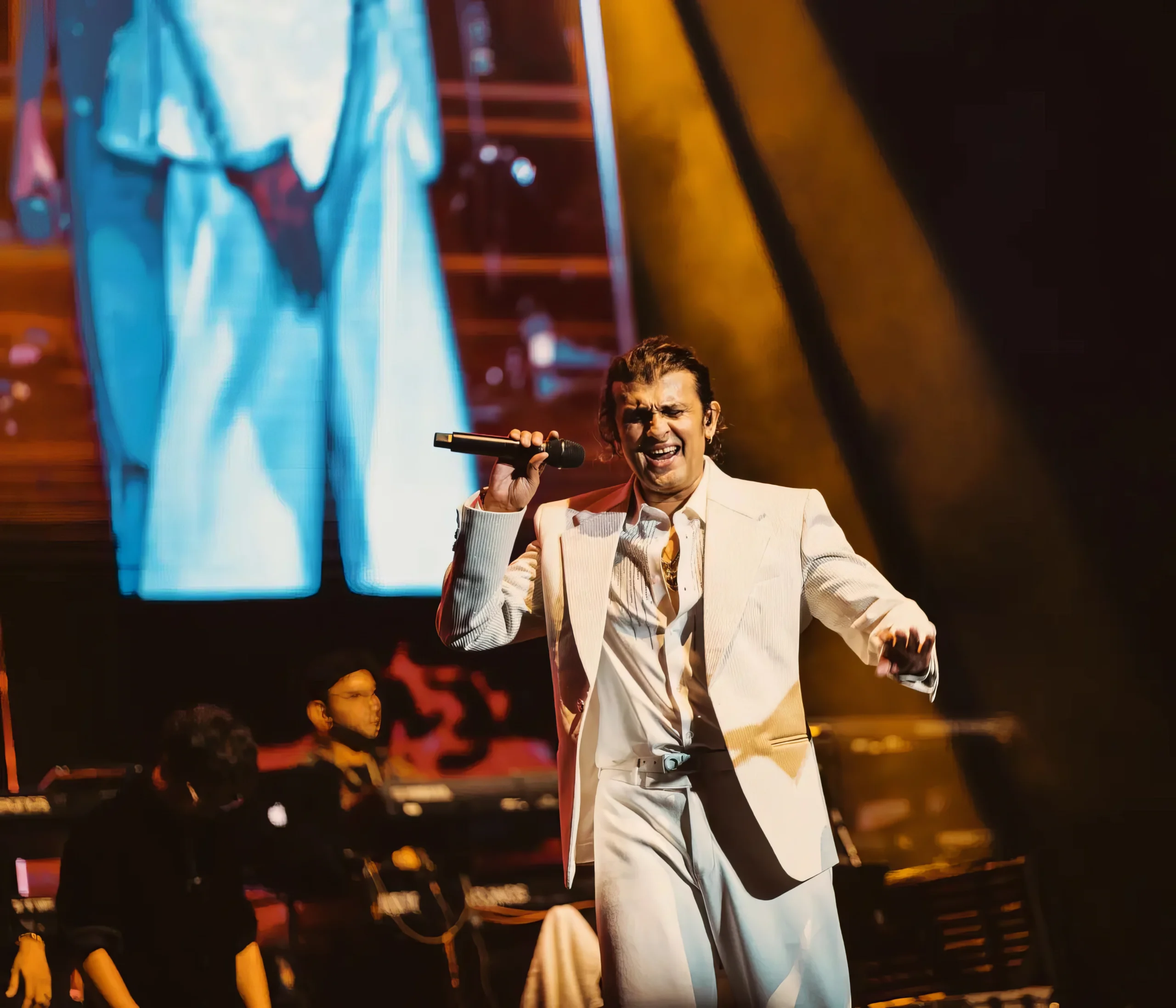
Has technology – streaming platforms, social media, AI – impacted your approach to music creation and audience engagement?
I am on a few social media platforms, and abstain from some which are notoriously negative. I go live very rarely, but do forward and review a lot of posts that fan pages make for me on a very regular basis. I consider them as my extended family as they truly love and protect me like family and soldiers. I do sometimes sit down to program and produce some music but mostly don’t have the time to invest in it when there’s so much more that I can practice and improve upon vocally. We release Independent songs on various streaming platforms besides my label. Trade and technology are changing every week, so I try to delegate such responsibilities to the experts around me who are like my family too and guide me through
new advancements.
Aspiring singers look up to you. What advice would you give them?
I don’t believe in giving advice any more. I believe everyone has his own journey. They are fine as long as they keep their eyes, ears and hearts open whilst they are dreaming of a worthy future
for themselves.

Reflecting on your journey, how have you evolved personally and professionally since your early days in the industry?
The Sonu that came to Mumbai to become a singer, no longer exists. Success, highs, lows, love, heartbreaks, money, marriage, child, professional challenges and roadblocks, spearheading the cause of Indian singers’ royalties, yoga, meditation, loss of a parent, books, Osho; all of them made sure a fresh new person emerged from these experiences.
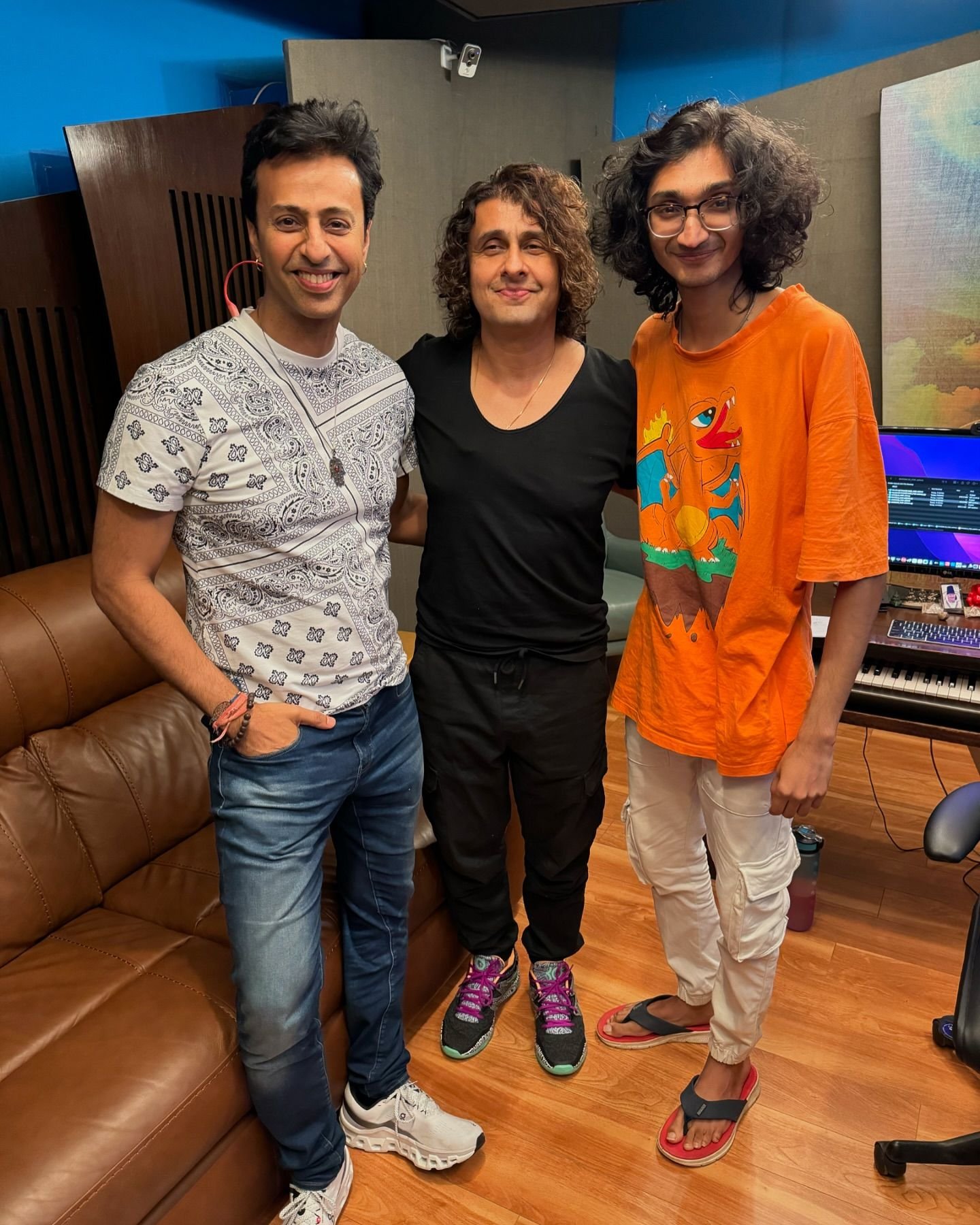
Do share a few nuggets on your family…
Both my parents were first generation professional singers from their families, both of whom have serious academic backgrounds, especially my father’s. Mummy left us in 2013 and she causes excruciating pain in our hearts whenever we remember her. A very intelligent, well-spoken, kind, talented and beautiful woman, we are what we are as a family because of her. Both my sisters Meenal and Teesha are gifted singers. Meenal is shining a lot lately, being an exponent and teacher of yoga and naad yoga, and is also doing a lot of beautiful spiritual music which is giving me a lot of happiness.
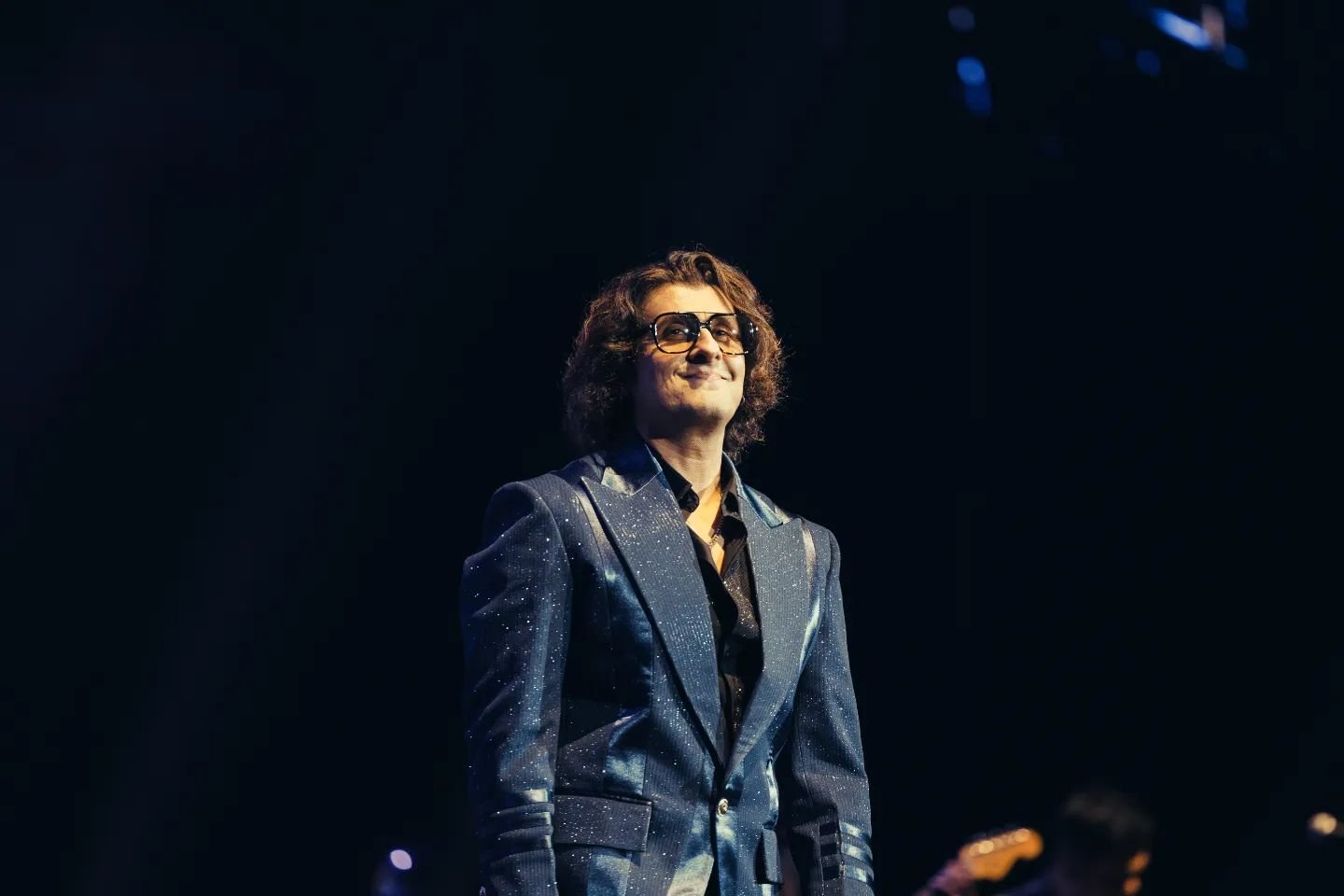
Finally, where does Sonu Nigam go from here… and what legacy is he most interested in carving out eventually?
Legacy, according to me, is the biggest myth in humanity. What do I care if someone hails my legacy or my name after I’m gone? I have to make sure that my life is special and precious and worthy while I’m alive. I should be happy, healthy and joyful as long as I am breathing.
I have no option but to evolve every moment. I leave it to the Universe to choose the best for me, for I believe in complete surrender to the invisible and unseen.
